
Shirley “Bella” Borghi shares how long-term community partnerships, promotoras, and data-driven programs are changing health outcomes across Georgia.
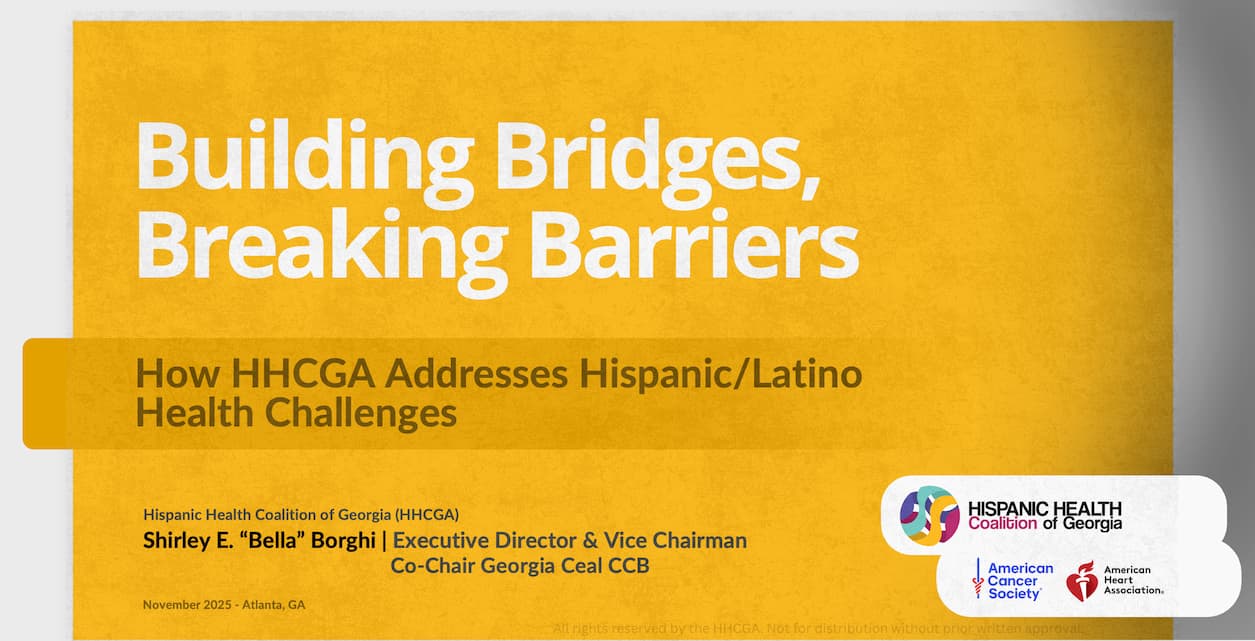
At a recent regional meeting held by the American Cancer Society (ACS), Shirley “Bella” Borghi, who is the Executive Director of the Hispanic Health Coalition of Georgia (HHCGA), discussed how over thirty years of community work is improving cancer and chronic disease outcomes for Hispanic families in Georgia.
Founded 38 years ago by two nurse practitioners at Mercy Care, HHCGA began with a straightforward goal: reach Hispanic communities in Georgia who were not being served through traditional health systems.
That mission has grown from local outreach to a statewide and national presence, supported by universities, health systems, and community-based organizations.
During the COVID-19 pandemic, Georgia CEAL (a National Institutes of Health and U.S. Department of Health and Human Services initiative) was created to effectively serve communities that health systems were not.
Bella described Georgia CEAL as a coordinated effort that includes HHCGA, Emory, Morehouse, IRB partners, and clinicians throughout the state, all working alongside similar teams across the country and in Puerto Rico.
While CEAL began as an emergency public health response, its focus now extends to:
The core principle has remained the same: meet people where they are, rather than expecting them to come to hospitals or clinics.
Bella reminded attendees that there are approximately 63 million Hispanic residents in the United States, representing about 19% of the nation’s population.
In Georgia alone, over 1.1 million residents identify as Hispanic or Latino, and those numbers are growing.
These residents live across the state, from Savannah on the coast to communities near the Tennessee border.
HHCGA’s work must account for:
Many community members work in jobs that do not provide health benefits, which often means entire families lack coverage. Georgia’s decision not to expand Medicaid has widened gaps in access to preventive and specialty care.
These system-level limits intersect with transportation barriers, food insecurity, housing instability, and mental health stressors that show up in the data as higher risks and delayed diagnoses.
HHCGA’s approach centers on trust and cultural familiarity.
The coalition works with:
For up to six months at a time, HHCGA collaborates with university faculty to bring students into real-world environments. Students join HHCGA teams in neighborhoods, clinics, and community events, and this experience is paired with classroom learning.
This approach strengthens care for today’s families while preparing the next generation of clinicians to understand how language, culture, and trust shape health behaviors.
Bella also emphasized that “Spanish” is not a single, uniform language. You must adapt messaging for people with roots in Mexico, Peru, Venezuela, Colombia, and many other countries.
Medical terminology and health education materials need to be accurate and understandable, while avoiding jargon that feels like a scientific thesis.
Bella outlined several interconnected challenges that shape cancer and chronic disease outcomes for Hispanic communities in Georgia:
Fear surrounding immigration enforcement adds another layer of complexity. Even when services are available, some families hesitate to attend events or visit clinics.
To respond, HHCGA has increased its community presence, spending more time listening, explaining, and rebuilding trust.
For HHCGA, chronic disease and cancer programs are never separate from mental health. Bella explained that a serious diagnosis affects both the body and the mind.
To address this reality, HHCGA works with a team that includes neuroscientists and mental health experts who help design programs that integrate:
For cancers such as prostate and breast cancer, HHCGA uses a “buddy system” and family education. Men are encouraged to speak with other men about prostate health, and women can speak with other women about breast health.
Spouses, partners, and adult children receive information about how to support their loved ones and navigate care.
Bella also recalled a common experience in immigrant households:
children acting as translators for their elders at a very young age.
HHCGA works to change that pattern by educating older family members and improving access to trained interpreters so children can remain in age-appropriate roles.
Nutrition counseling is another area where cultural context matters.
Rather than asking families to abandon traditional foods, HHCGA and its partners focus on:
Participants see side-by-side comparisons of how much salt, sugar, and fat they can reduce with these changes. The goal is not to shame people about what they eat, but to show that they can maintain cultural dishes while protecting their health.
This work grounds itself in economic reality.
Many families cannot spend more on groceries, so recommendations must rely on ingredients they can already access and afford.
A technology backbone operated in partnership with Microsoft supports HHCGA’s programs.
This infrastructure allows the organization to:
Workshops, webinars, focus groups, and community events focus on topics such as diabetes, mental health, breast and cervical cancer, heart disease, and more.
On average, HHCGA leads at least six major events each month and brings mobile units, clinicians, promotoras, and other partners together in one place.
Through Georgia CEAL and related initiatives, HHCGA continues to coordinate with clinics, FQHCs, big-tech institutions, medical schools, and ACS partners.
In a recent year of the ACS Environment and Health (EH) program, HHCGA reached 11,000 people in Georgia in person, not counting social media and digital outreach.
The coalition serves on steering committees such as:
HHCGA has built a network that includes:
These efforts have been recognized nationally.
HHCGA and Bella have received a CDC and National AIM award for statewide excellence in immunization education and impact.
Bella closed her remarks by emphasizing that everyone in the room is an agent of change - from community organizations to academic institutions, health systems, and ACS staff and volunteers. HHCGA knows its primary focus is Hispanic communities in Georgia, but its partnerships extend to other racial and cultural groups facing similar barriers.
She used a simple image to describe how collaboration works:
HHCGA is prepared to “fly its own plane,” but is equally willing to sit in the jump seat or even coach on someone else’s flight when a partner needs support.
The goal is not who pilots the plane; the goal is whether communities reach safer, healthier ground.
For ACS and regional partners, the message was direct:
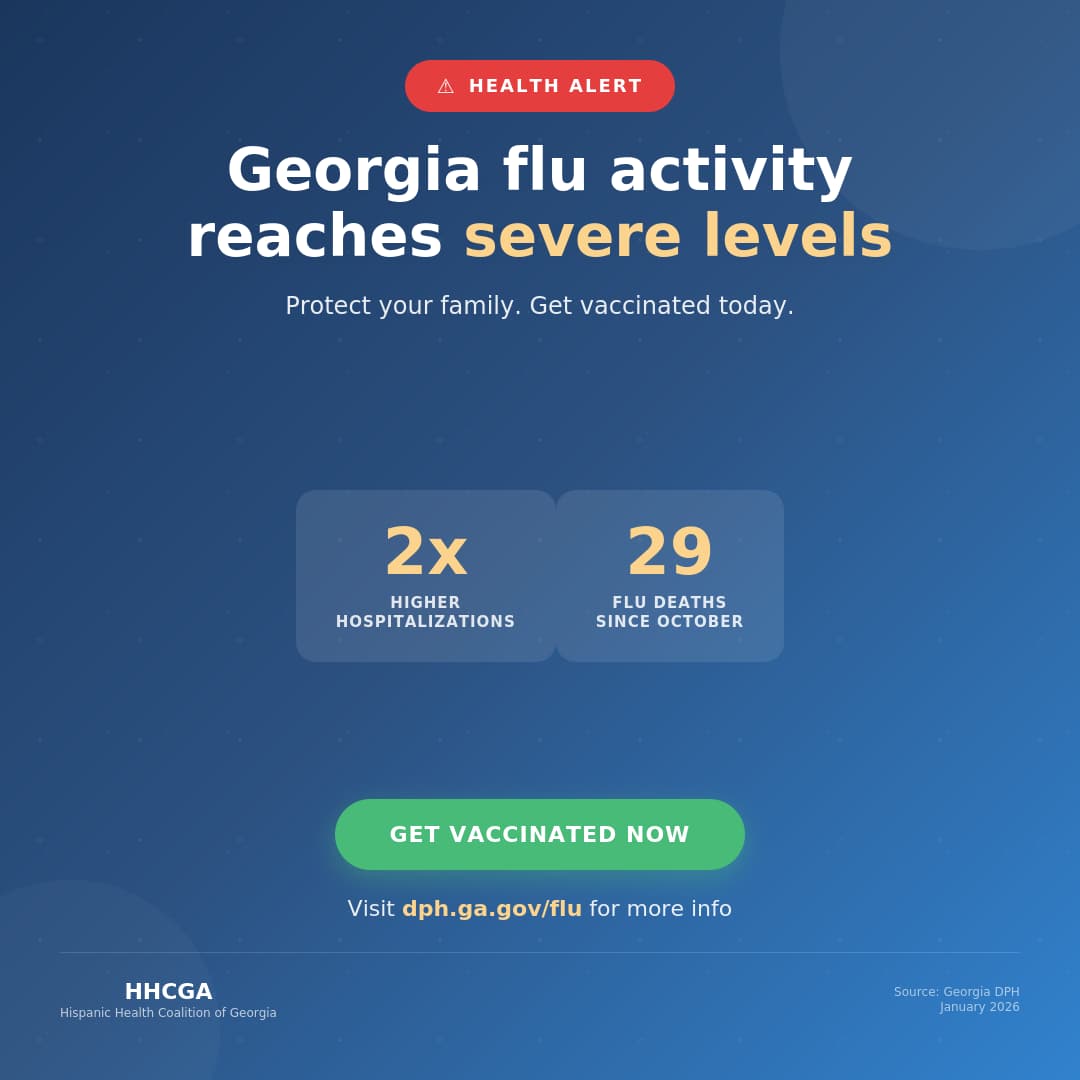
Flu activity across Georgia has reached severe levels, and health officials urge families to get vaccinated now.
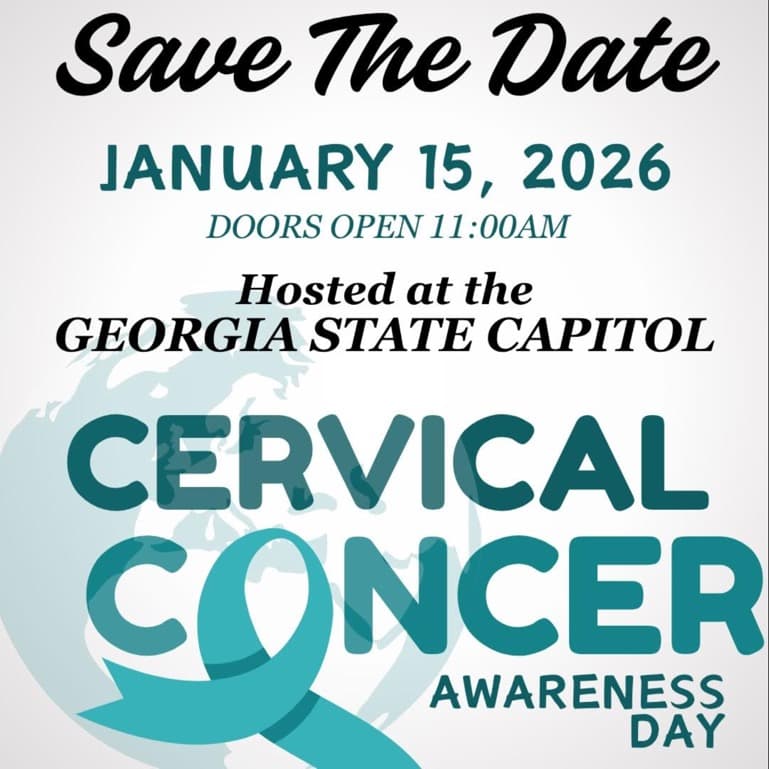
Healthcare professionals and community advocates gather at the Georgia State Capitol to advance cervical cancer prevention through education, advocacy, and collaboration.
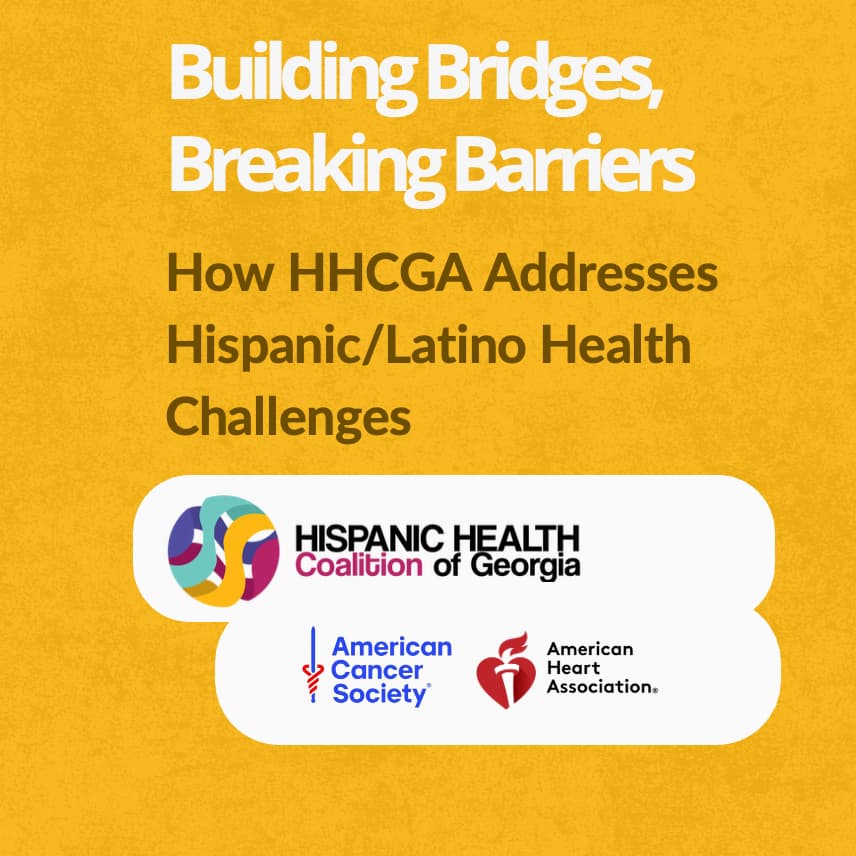
Discover how HHCGA and its partners are using trusted messengers, data, and community-based programs to improve cancer and chronic disease outcomes for Hispanic families across Georgia.

HHCGA is partnering with Emory University’s Hope Clinic to address a critical gap in Long COVID research. The REVERSE LC study examines whether baricitinib can help with “brain fog.”
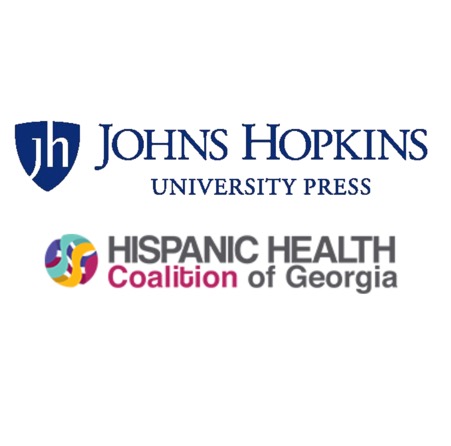
Georgia CEAL’s research on hyperlocal and community-engaged COVID-19 response, co-authored by HHCGA’s Shirley “Bella” Borghi, is now published in PCHP.
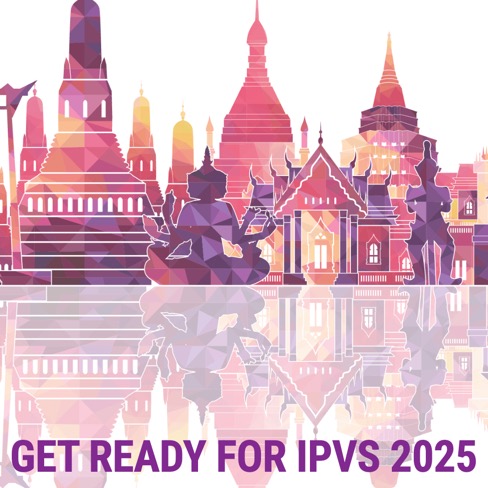
HHCGA’s Executive Director Shirley “Bella” Borghi co-authors HPV research accepted for the 2025 International Papillomavirus Conference in Bangkok.

Discover how HHCGA and Best Start for Baby & Mom are empowering Georgia families with resources for healthier beginnings.
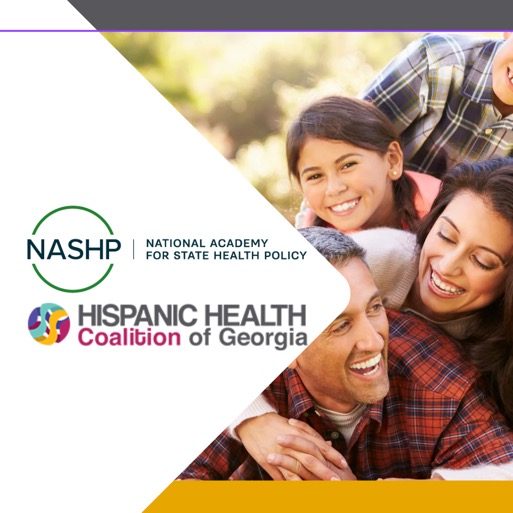
Discover how the VISER Network connects data systems to strengthen vaccine programs and reach more families.
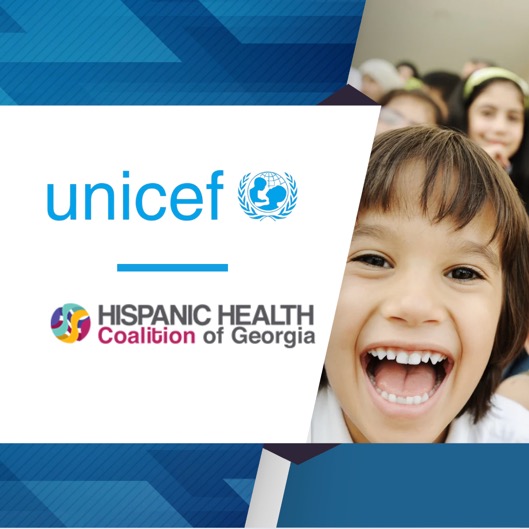
UNICEF and HHCGA are teaming up to strengthen diabetes screening, education, and access to care for Hispanic families across Georgia.

Make your voice heard at Grady’s Community Conversation in DeKalb on Sept. 24.

Registration closes Sept. 19 for the 3rd Long COVID International Conference — join experts shaping the future of Long COVID care and research.

Join us Sept. 26 in Macon for a free car seat safety check to keep your child safe on the road.

Ossie Williams elevated survivor voices and addressed health disparities at the 2025 Georgia Prostate Cancer Roundtable.
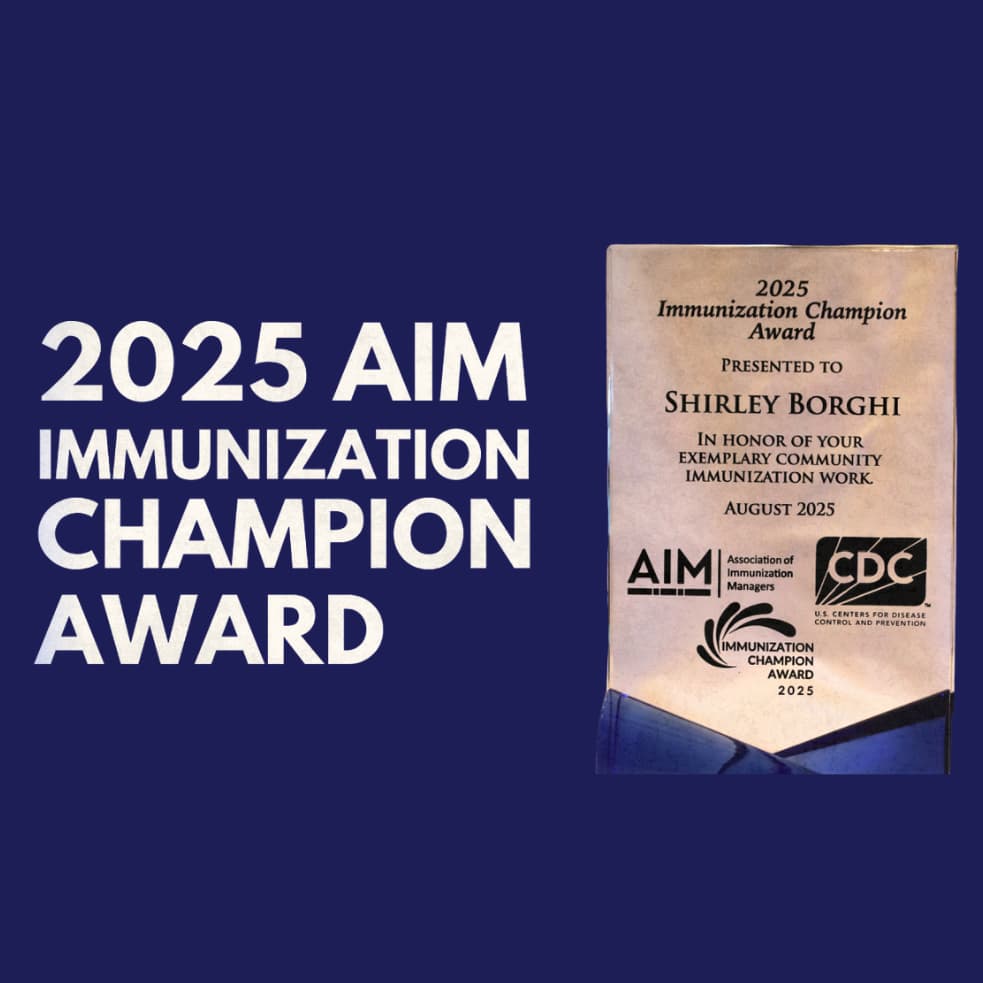
HHCGA’s Shirley E. “Bella” Borghi is recognized as Georgia’s 2025 AIM Immunization Champion for her leadership in vaccine access and outreach.
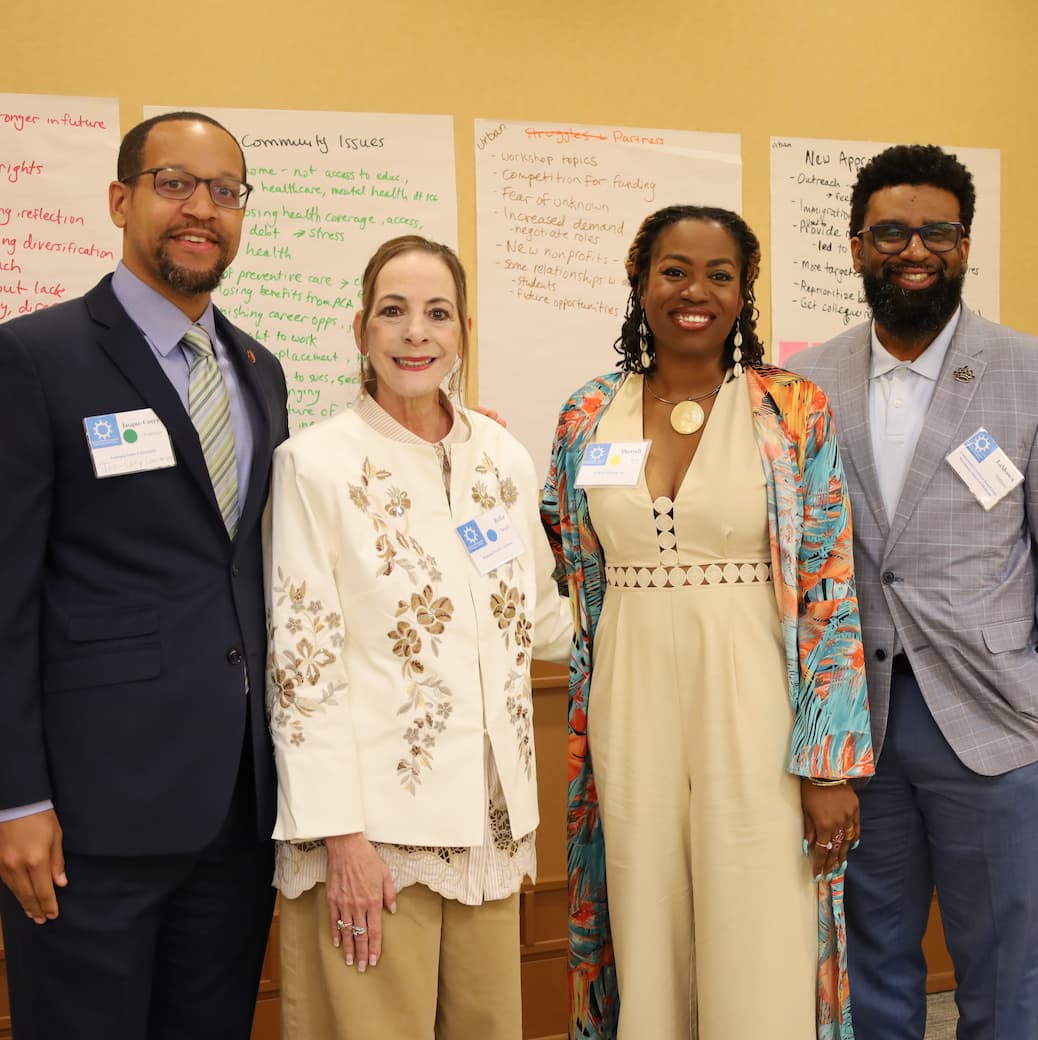
Reflections from the Georgia Thrives Together Community of Practice on centering community voice, resilience, and sustainable health initiatives.
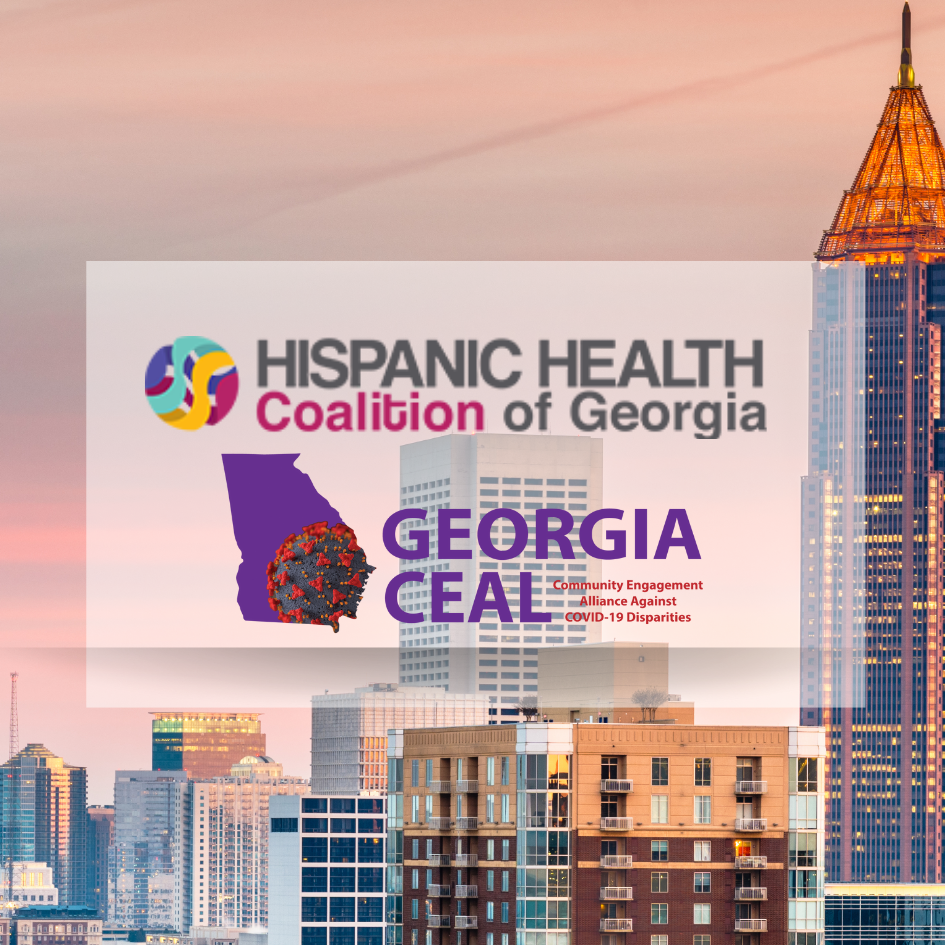
Discover how Georgia CEAL’s community-led approach helped more than 65,000 residents get vaccinated during the COVID-19 pandemic.
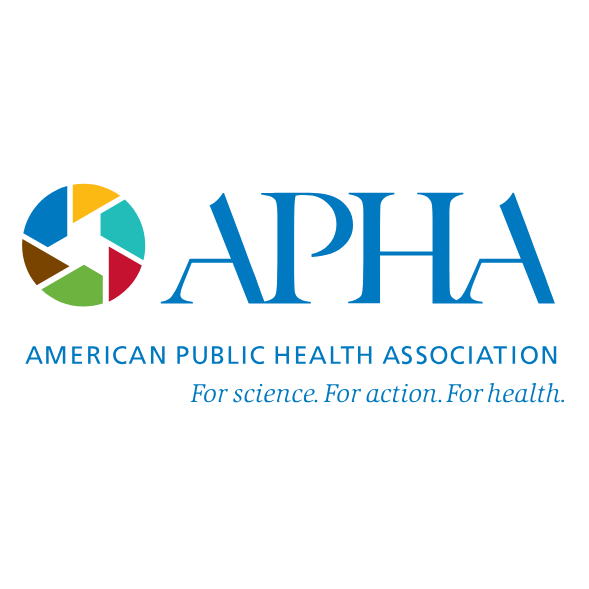
HHCGA research highlights how policy, prevention, and mental health support can reduce type 2 diabetes in Georgia’s most vulnerable communities.
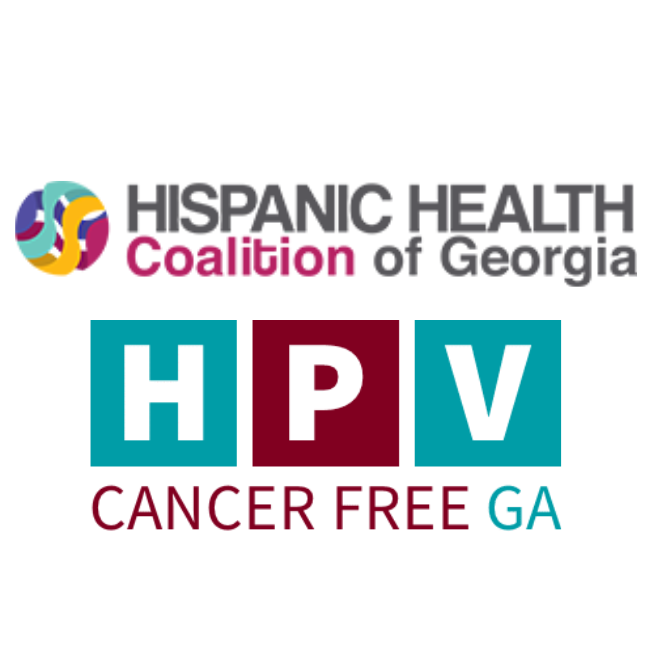
Clinicians and advocates unite to boost HPV vaccination rates in Georgia and prevent HPV-related cancers.
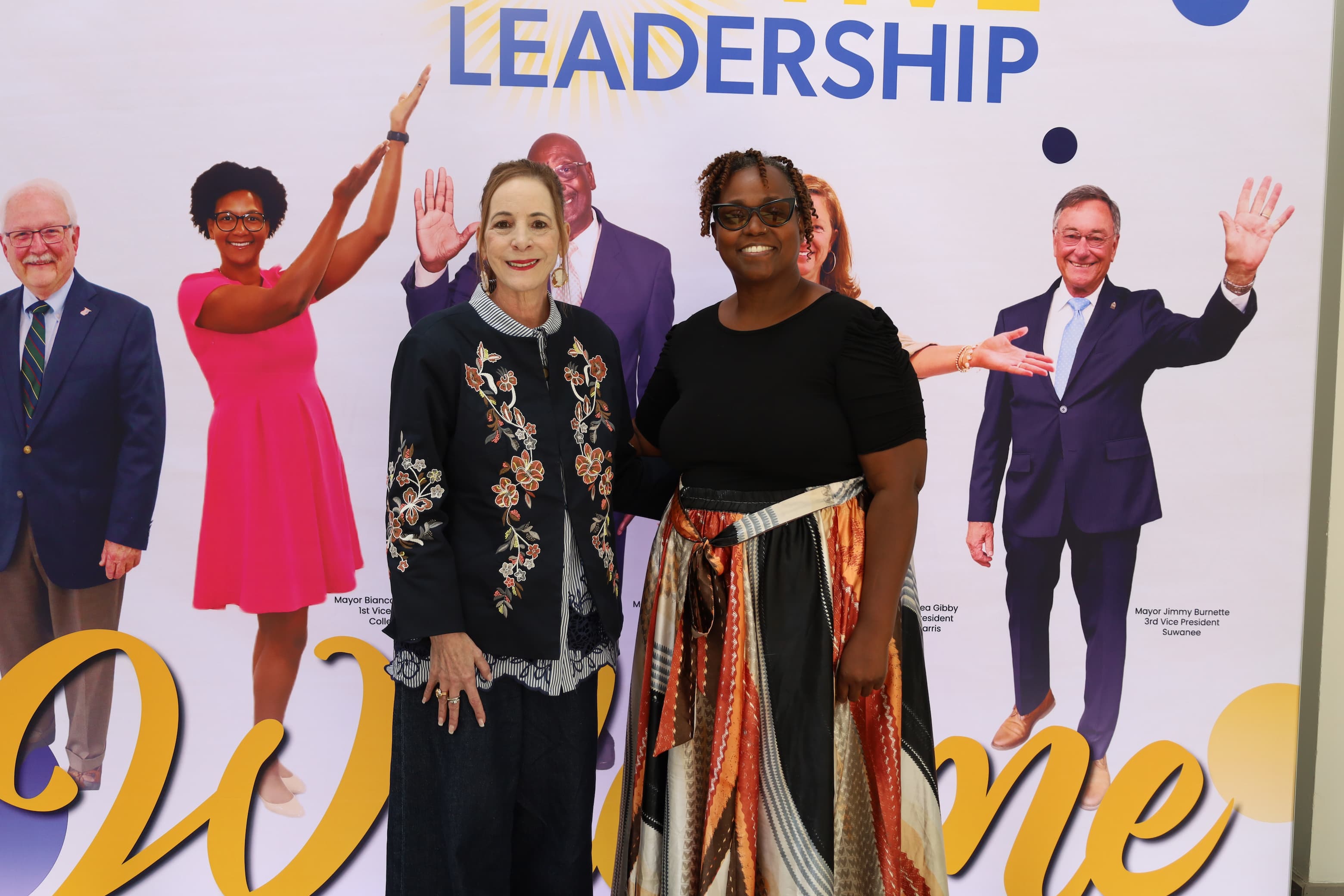
How local leaders and HHCGA are shaping Georgia’s public health future—starting with trust, mental health, and community health workers.
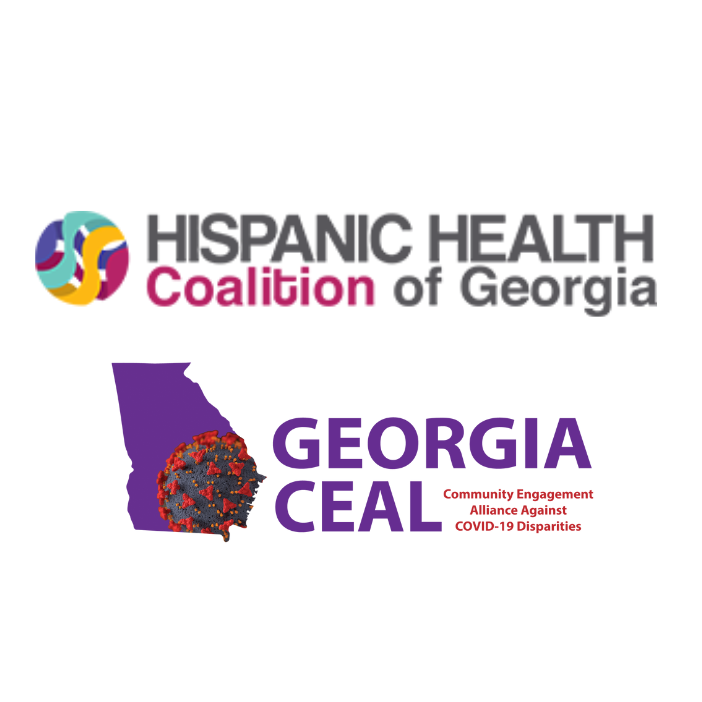
Discover how mental health is shaping diabetes outcomes—and what Georgia CEAL is doing to respond.
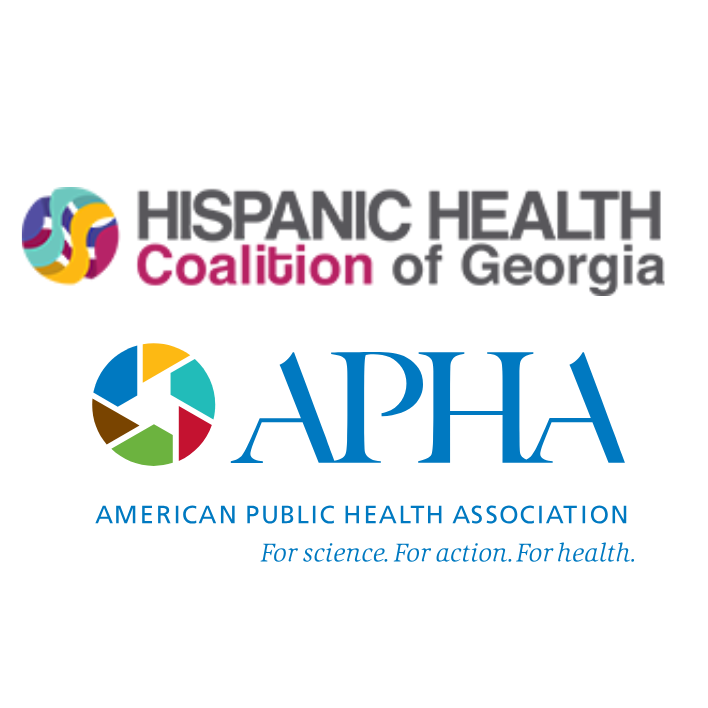
Explore how Georgia CEAL RESTORES is using community-driven research to fight diabetes and transform public health policy from the ground up.
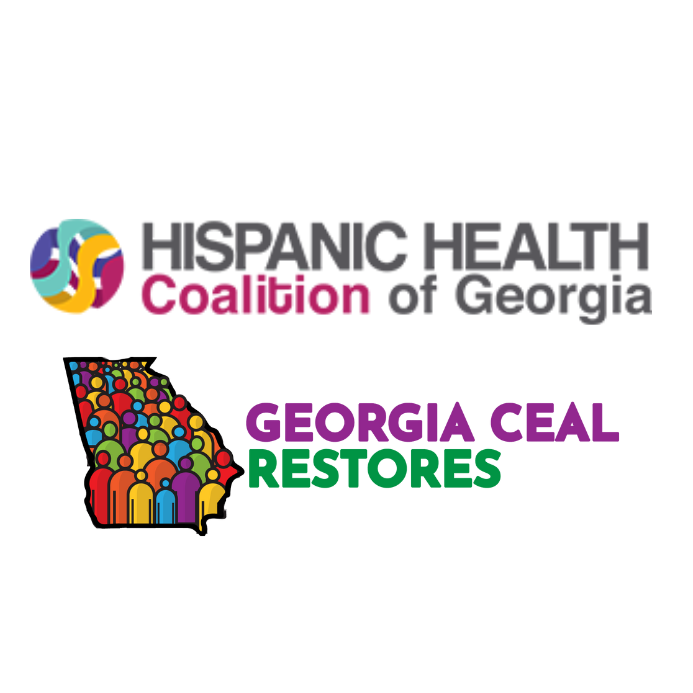
Discover how Georgia CEAL RESTORES is empowering community leaders to drive policy and prevention strategies for better public health.
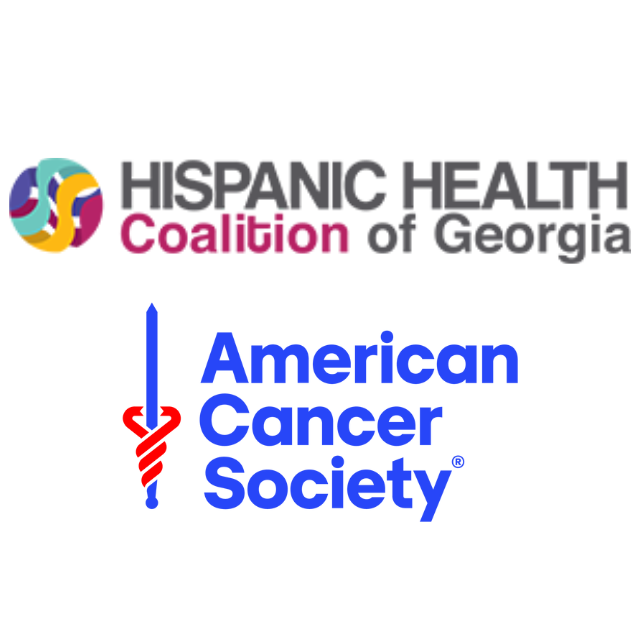
Learn how HHCGA's recent ACS training is empowering communities through proactive cancer prevention.

Discover how a simple talk about PSA screening could help young men detect aggressive prostate cancer before it’s too late.

Learnhow this multi-level intervention aims to stop diabetes before it starts inGeorgia communities.

Learn how local officials can turn proven research into real-world health gains forGeorgia communities.

Discoverhow Georgia CEAL research uncovers the hidden mental toll of living with type 2diabetes.

Discover how the CEAL Annual Meeting sparked fresh ideas and partnerships to advance community-focused health studies.

Four data-driven steps every Georgia family can take to keep kids safe this summer.

See how HHCGA’s newly ACS-certified team is bringing lifesaving cancer-screening knowledge to our communities.

Discover free health services, resources, and fun for the entire family at our Annual Hispanic Health Fair!

Learn how a groundbreaking initiative unites community-based organizations and top academic centers to reshape cancer prevention and control strategies.
.jpg)
Heart disease remains the leading cause of death in the U.S., but with the right knowledge and preventive care, you can protect yourself and your loved ones. Learn more about heart health with our expert-backed resources.

Georgia’s 8th Annual Cervical Cancer Awareness Day is making strides toward eliminating cervical cancer through education, advocacy, and groundbreaking developments.

Join Georgia’s 8th Annual Cervical Cancer Awareness Day - earn CE credits, gain expert insights, and advance your impact in cervical cancer prevention.

Georgia’s 8th Annual Cervical Cancer Awareness Day unites healthcare professionals, policymakers, and communities to promote education, advocacy, and collaboration in the fight against cervical cancer.

Exciting opportunity to impact Latino health and wellness as a Community Outreach Coordinator.

La Ronda Estatal de Cáncer de Próstata en Georgia aborda los esfuerzos para combatir el cáncer en las comunidades hispanas/latinas.

The first statewide Georgia Prostate Cancer Roundtable highlights efforts to address prostate cancer across Georgia.
.jpg)
HHCGA’s abstract on eliminating cervical cancer in Georgia to be presented at the 36th International Papillomavirus Conference in Edinburgh.

Descubre cómo la HHCGA y los consulados latinoamericanos en Atlanta están colaborando para brindar servicios de salud esenciales a las comunidades hispanas en los Estados Unidos.

HHCGA collaborates with Mora’s Life Saving Training to equip Promotores with essential CPR and AED certification for enhanced community safety.

HHCGA honored as the first Hispanic/Latino organization in Georgia to receive the Health Advancement Ambassador certification from the American Cancer Association.

Emory University and HHCGA collaborate on an impactful study addressing diabetes prevalence in Georgia's Hispanic/Latino population.

Discover how academic and community partnerships like the one between Moorehouse School of Medicine and CEAL are shaping the future of public health and community engagement.

Amidst the rain, the spirit of commitment shone through as over 300 health workers gathered in Atlanta, determined to drive change and uplift communities through dedicated CHW/Promotores work.

Explore the highlights and pivotal moments from Georgia’s 7th Annual Cervical Cancer Awareness Day — a day dedicated to celebrating progress, recognizing heroes, and strengthening the fight against HPV-related cancers.

Discover how Direct Relief’s Health Access Fund is revolutionizing healthcare across the U.S., featuring groundbreaking collaborations and innovative strategies from leading health organizations.

Join us in celebrating the remarkable work of Rollins graduate students, whose dedication and engagement with HHCGA are driving meaningful health initiatives within our community.

Daniela Ramírez reflexiona sobre la mezcla de culturas y experiencias variadas en la Reunión Anual de la APHA 2023, destacando el alcance comunitario y la resiliencia de HHCGA ante una pandemia global.

Daniela Ramirez reflects on the blend of various cultures and experiences at the APHA 2023 Annual Meeting highlighting HHCGA's community outreach and resilience in the face of a global pandemic.

HHCGA se destaca en la vanguardia del compromisocomunitario en salud, marcando un hito reconocido a nivel nacional por suefectividad en mejorar el acceso a la salud.

Unveiling the success story of HHCGA: A beacon of hope in community health engagement, recognized nationally for their impactful work in advancing community health.

Dive into the 2023 APHA Annual Meeting where over 12,000 health professionals gathered to push the boundaries of public health, driven by the leadership of the Georgia CEAL team and HHCGA's commitment to improving healthcare access.

If your family doesn’t have medical coverage or is on the brink of losing it, now is the time to act. Don't wait! Apply right away at GeorgiaPCA.org and ensure your child's health and well-being.

La PCA de Georgia ha tomado las riendas para asegurarse de que las familias con niños y adolescentes elegibles estén informadas sobre el salvavidas que es el seguro de salud.
.png)
HHCGA’s Clarkston Health Awareness Day champions multilingual healthcare access. Discover a new era of welcoming healthcare, community unity, and empowerment.
.png)
Uncover a unique blend of lively cultural festivities and essential health resources tailored for our community. From tantalizing traditional cuisines and captivating performances to invaluable health screenings and advice, there's something for everyone.

Learn how UGA Pharmacy Students and HHCGA are joining forces to make a real difference in the health of underserved Hispanic communities.

Uncover the transformative work of Georgia CEAL and its partners in combating COVID-19 disparities, as recognized in PCAST's report, and discover how community-engaged practices are shaping the future of community health improvement.

Dive into the highlights of the CMS Quality Conference 2023, where healthcare experts unite to champion community resilience and improved access to care.

Uncover how Georgia CEAL and HHCGA are addressing long-standing gaps in healthcare and enhancing vaccination rates through community-driven initiatives at CMS Quality Conference 2023.

Discover how the Georgia Cancer Control Consortium's HPV Cancer Free Workgroup is making strides in the fight against HPV-related diseases at the IPVC 2023 Conference.
%20Plaza%20las%20Americas%2004.16_2.jpg)
Discover how the NFL Alumni GA and HHCGA are teaming up for an empowering health fair event – Learn how you can join the fun and improve your health at the same time!

St. Jude's Rural HPV Vaccination Think Tank Committee 2023 aims to boost vaccination rates and prevent cancer, with expert Shirley E. Borghi and the St. Jude Cancer Prevention Program.

Explore the wealth of mental health resources, services, and support tailored to the unique needs of Hispanic Latino special needs families. Learn how you can get involved and make a difference in our community.

Get the latest information on the partnership between the HHCGA and Emory University and their efforts to improve health outcomes for the Hispanic/Latino community in northeast Georgia.

Get the latest information on the HHCGA & Emory University partnership and their efforts to improve health outcomes for the Hispanic/Latino community.

Celebrate World Cancer Awareness Day with us. Learn about the importance of cancer awareness and how you can make a difference.

Grassroots Labs is an online marketplace providing price transparency and cost savings on routine lab tests with physician oversight provided; they are also fully bilingual in English & Spanish.

The program provides leaders from various medical backgrounds with unique opportunities to partner with MSM in providing relevant experience and exposure to real-world medicine challenges.

The HHCGA Ambassador program is more than just a vaccine initiative, it is an investment in the health and well-being of the Hispanic community.

Gynecological Cancers program is dispelling myths, providing essential information, and empowering women to take control of their health.

Don't let confusion and misinformation stand in the way of your health. Call the TCN hotline today at 678-679-6799 and get expert support and private, one-on-one conversations.

Take advantage of this opportunity to get vaccinated and enter into a drawing to win a $75 Walmart Gift Card by participating in a brief post-vaccination survey. Car seat safety checks will also be available.

Congratulations to Bella and all the award recipients for their outstanding work and commitment to improving health access and outcomes in Georgia.
